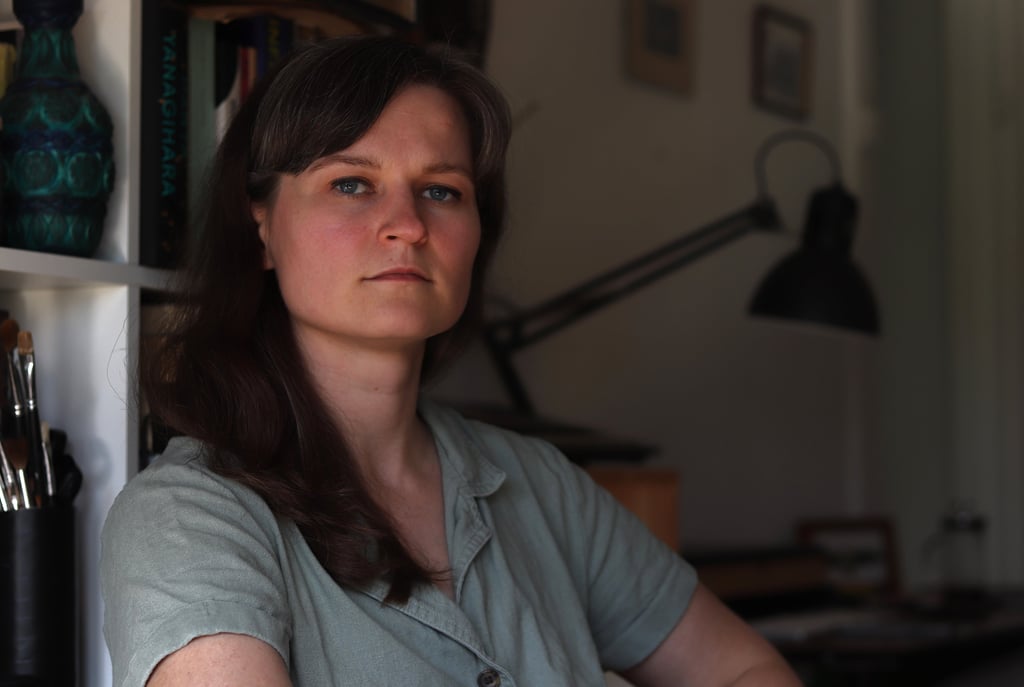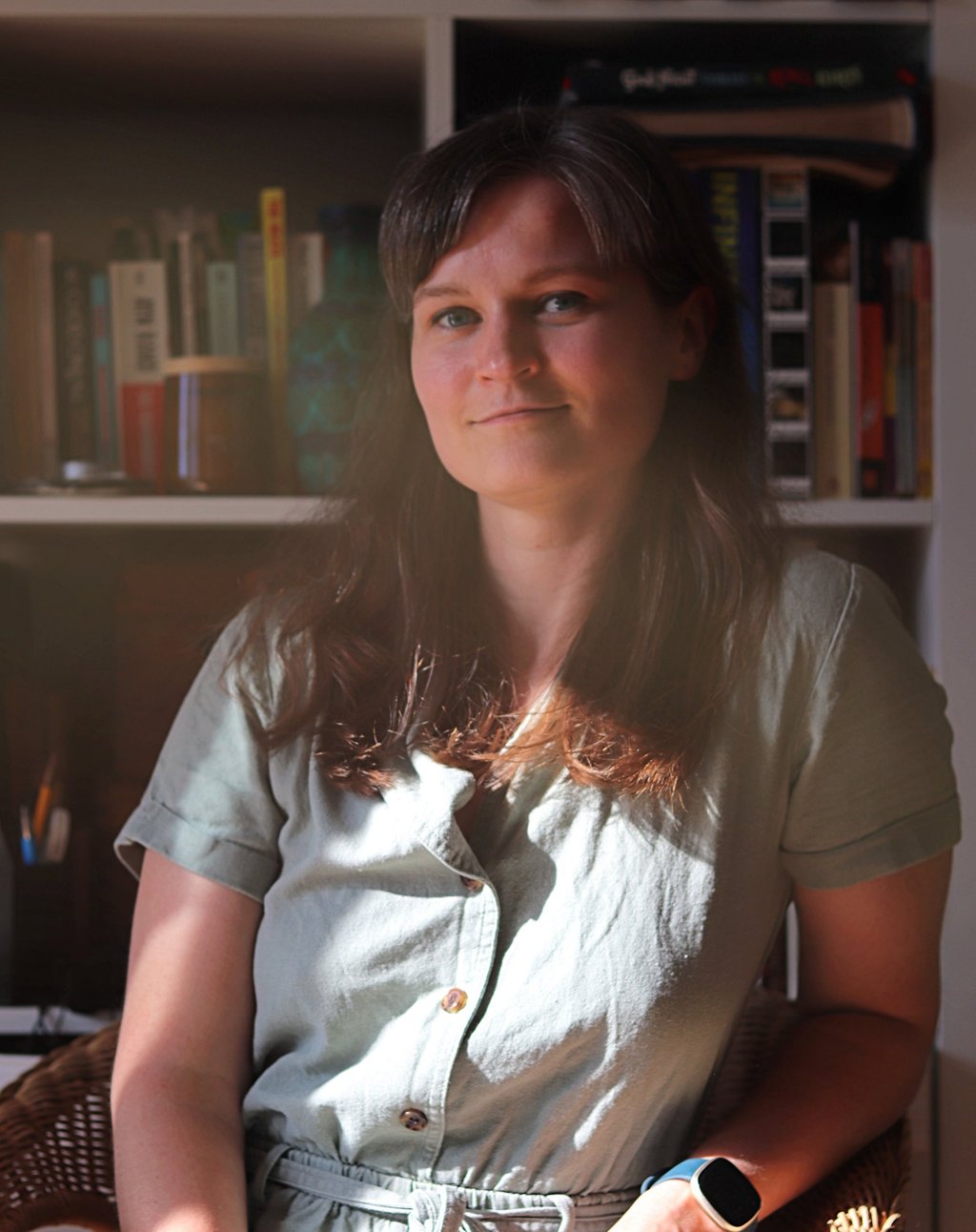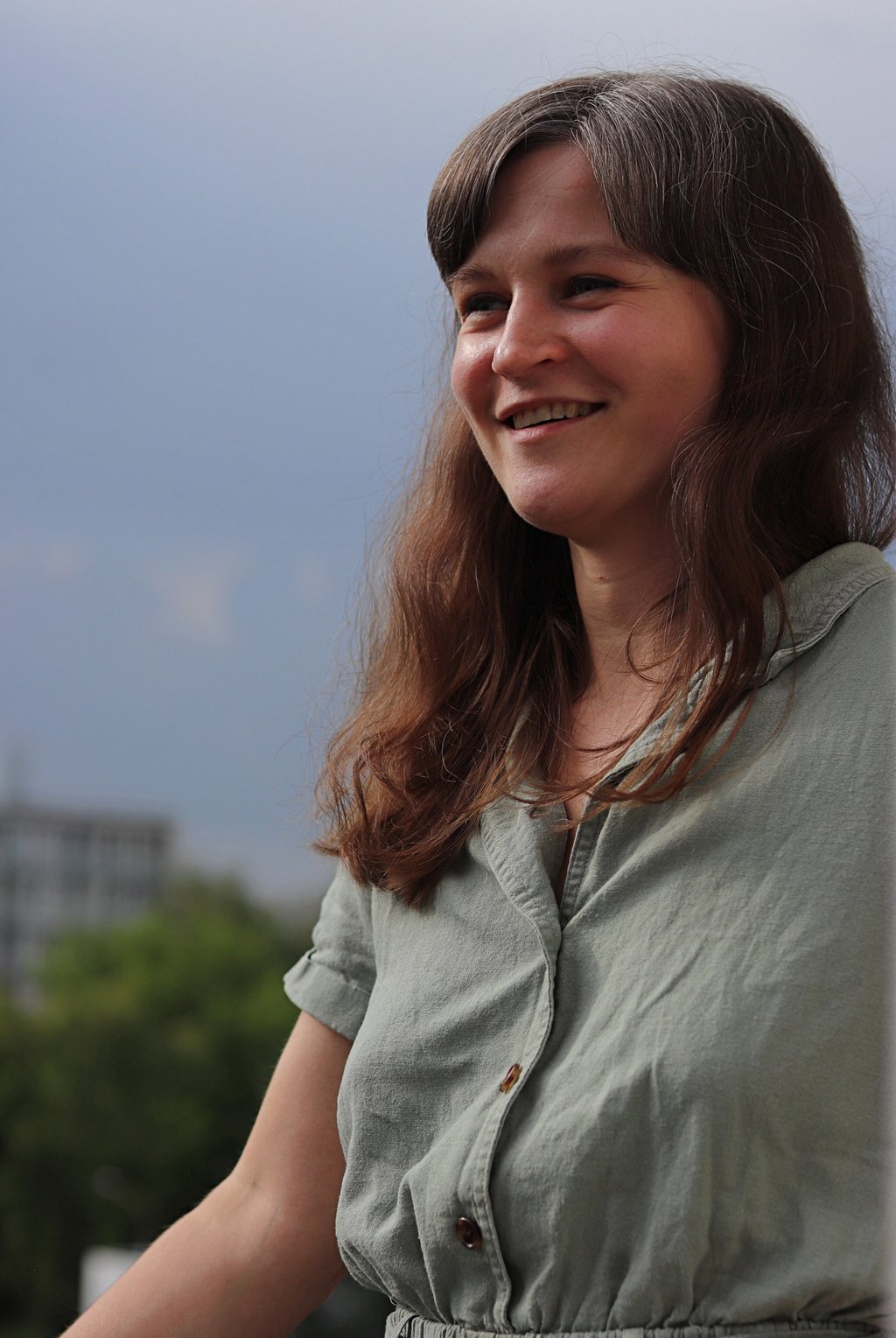Portraits of Members: Greta, Representative of the Text Workers' Union
Greta, G1PS council member and branch representative for new members, talks about the realities of translators, fee negotiations and the establishment of the TDPS
ENGLISH
6/20/20246 min read


I am currently a PhD student at the Institute of Lithuanian Literature and Folklore, working on my dissertation entitled "The Structure and Expression of Memory Conflicts in the Holocaust (Post)Memory Literature of the Lithuanian Diaspora and Lithuanians". I am also a lecturer at Vilnius University, teaching French language, grammar and literature. I am also a translator, although I translate less nowadays, but it is part of my job.
At the moment I don't really like my research work, but I'm in my fourth year of PhD, and I've just got to finish and hand in my dissertation, so maybe that's why I don't like it. But I really like teaching and translating. Before my PhD I was a translator, translating fiction, philosophical literature and working with various translation agencies.
I never had a dream job, I didn't want to work (laughs), I just knew that I would have to do something, so I try to get away with working as little as possible.
Things started with the Text Workers' Union when I made a post on Facebook, where I described how the average wage in Lithuania has changed over a decade, and how literary translators' salaries have remained the same in the ten years I've been working as a translator.
My main observation was that in 2014, a translator had to translate four author's sheets (an author's sheet is 22 pages of text) in order to receive an average salary, according to the minimum translation rates recommended by the Lithuanian Union of Literary Translators. Today, a translator would have to translate almost twice as much - seven and a half authorial arcs - if he or she wanted to earn an average salary. Such a volume is simply impossible. Any translator would agree that four sheets per month is the maximum that can be done to a high standard. Of course, it depends on individual translators and the nature of the texts, but that is the average.
I've been thinking about it for a long time, and sometimes I've talked to some people, but I haven't written about it in detail. The last straw was when I was discussing a translation of a book. I asked for a higher fee, which they refused to pay me, saying that "we already pay you more than any other French translator". When I received this letter, something inside me snapped. I saw this red flag and I got angry, and then I made this Facebook post and somehow it resonated with many people.
It seems to me that absolutely all people who work with texts experience the same things. We live in the same small market, the problems are exactly the same: instability, low fees, isolation, and, of course, the linguistic challenges.
Despite the looming danger of artificial intelligence, literary translators are not at risk of losing their jobs - only losing their value. The internet has certainly made translation easier: there are more and more dictionaries available, and many things can be looked up. But in principle, the main job of translation is not just putting words together. It's about making sure that your translation has the same meaning as the original text. If you use machine translation, you get a set of sentences. The translator's job is one of editing, because you have to make a text out of sentences.


The relationship with G1PS started last autumn, when I was contacted by Tomas Marcinkevičius after the Facebook post and offered to form a trade union. We decided to go beyond translators and expanded the concept to a union of text workers. Our problems are similar and closely related, translators often work as editors and some also write various texts. We tried to think more globally and more broadly to unite more people.
At the moment, when it comes to translators, there are some unions and associations in Lithuania. There is the Lithuanian Union of Literary Translators, which is open to people who have translated at least a couple of books. There is also the Lithuanian Translators' Association, which you can only enter if you have a Master's degree in translation. I, for example, would not be able to get in because I have not done any formal translation studies.
The aim of the Text Workers' Union is to go beyond the current unions, because they have a different role, they bring together experienced professionals. We understand that most of the problems arise at the beginning of the job: you don't know who to go to, how much money to ask for, how to evaluate yourself.
I remember myself when I started working as a translator - I had people I could ask for advice, because I had studied French philology, so some of the lecturers were able to help me a bit. But, again, they were individuals and they didn't know everything themselves.
The first time the would-be union of text workers met, there were four of us, then we grew to ten quite quickly, and now there are twenty-something. Things moved quite slowly, we interviewed people we knew individually. It's not very easy to persuade someone to join the union, but it's easy enough to find support. Most people in the field support our activities and objectives.
Our main goal is to have some kind of legal minimum rate for working on texts. Right now we are basically talking about translators' and editors' remuneration - one average monthly salary for four sheets for translators, eight for editors. This is double the current remuneration. Under existing rates, a translator will often receive around EUR 800-900 for four author's sheets. After tax, this results in a salary that is even lower than the minimum wage. And it is difficult for even an experienced translator to ask for higher fees.


For me, the biggest benefit of a union is the community, the support, the sharing of experience. We already have examples where people have negotiated better salaries just because their union friends have said "no, this is not enough, you should ask for more, at least try". If you don't ask for it, nobody will give it to you, you have to get over yourself. This is something that I have been learning for a long time myself.
My first book translation ended up not getting paid for three years. But that was entirely my fault as a young translator, because the contract stated that half the payment would be made immediately and half when it was published... and then it was not published for three years. I signed the contract in litas (the Lithuanian currency up to 2015), and eventually they paid me the in euros.
Only in my third job did I realise that if an employer hires me, it's not just that I have to be liked, it's not just that the employer is doing me a favour in hiring me. I was doing them just as much of a favour by going to work for them.
It is important to always at least ask for more money and not to work for free - unless it is some kind of cause or volunteering. I realise that it is not always possible to get a higher fee because there is a risk of being told 'no'. But it shouldn't be something to be terribly afraid of, but rather to be accepted as a kind of game. If you don't get more, you can always accept to work for the original rate offered - if you really want or need to.
I would wish that every text worker could create the conditions to refuse unfair job offers. Having said that, I realise that it is very difficult, often a matter of luck and not everyone can afford it.Value your work and do not let others devalue it. If you have translated a book, contact LATGA for remuneration for the use of books in libraries, because a translator is like an author and can be compensated if their book is taken out of a library. And, of course, join a trade union.
Our unit is open to anyone who works with texts and has problems with low rates, negotiations, or unfair contracts. These problems have been around for a long time and the solutions will not appear immediately. I will sound pessimistic, but every time I think about it, I see the collapse of culture - there seems to be no solution. But when I meet with my trade union colleagues, when we are together, it seems that maybe it is possible...
At the moment, we don't have any fruits yet, but we are planting a garden. That's why we are calling on the sowers the most.

